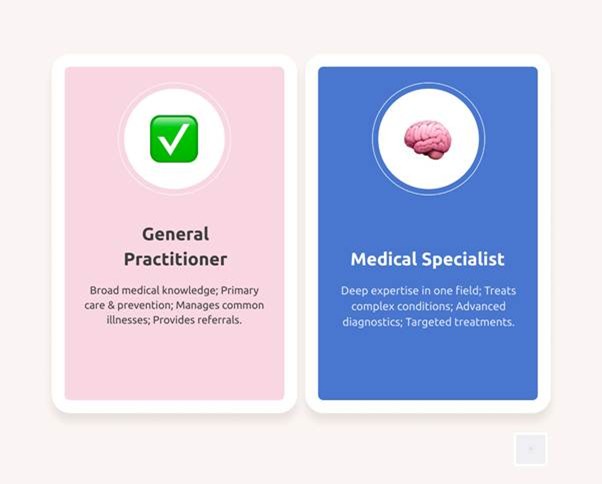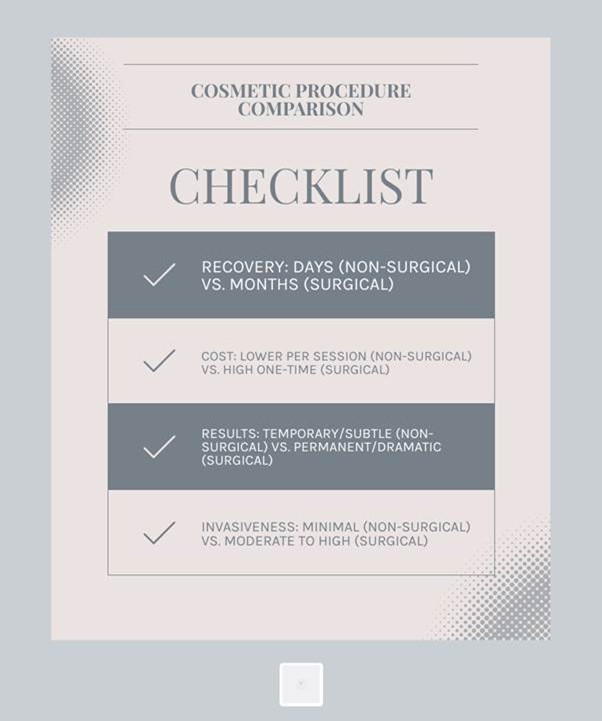Introduction to Specialized Healthcare
Finding the right expertise is crucial when facing health challenges. General care is important, but sometimes, you need a deeper level of knowledge. Specialized healthcare can offer more precise solutions and better results. It means connecting with experts who focus on specific areas of medicine.
Navigating the healthcare system can be overwhelming. This guide aims to simplify that process. We will explore specialized medical care and look at how it can make a real difference in your health journey.
This article will cover three key areas where specialists excel. First, we will discuss addiction recovery. Understanding the unique challenges of addiction requires expert care. For those seeking Riverside specialized medical guidance, resources are available to explore local options.
Next, we will explore advanced orthopedic treatments, which help with bone and joint issues. Finally, we will examine the latest innovations in cosmetic and aesthetic surgery, which include options for personal improvement and reconstruction.
Join us as we uncover how these dedicated professionals provide custom care. They help patients achieve optimal health and well-being.

The Role of Specialists in Addiction Recovery
Addiction is a complex disease, not a moral failing. It demands a nuanced, multi-faceted approach that general healthcare providers may not be equipped to offer. This is where specialized addiction recovery centers in Riverside, CA, become invaluable. These facilities provide targeted interventions designed to address the unique physiological, psychological, and social aspects of substance use disorders and co-occurring mental health challenges.
Riverside, like many communities, faces significant challenges related to substance abuse. The local fentanyl crisis, for instance, has escalated dramatically, with deaths caused by fentanyl in the Riverside area increasing by a staggering 800 percent in the last five years. Over 500 deaths are expected this year alone due to fentanyl poisoning. This grim reality underscores the urgent need for accessible and effective specialized treatment options within the community.
Specialized rehab centers in Riverside offer a comprehensive continuum of care, starting with medical detoxification (detox). This crucial first step safely manages withdrawal symptoms under medical supervision, which is particularly vital for substances like alcohol, benzodiazepines, and opioids, where withdrawal can be dangerous if unsupervised. Following detox, individuals may transition to inpatient (residential) or outpatient programs, depending on the severity of their addiction and their personal circumstances. Inpatient programs provide a structured, 24/7 therapeutic environment. At the same time, outpatient options, including Partial Hospitalization Programs (PHP) and Intensive Outpatient Programs (IOP), offer flexibility for those who need to maintain work, family, or educational commitments while receiving intensive treatment.
The duration of addiction treatment programs in Riverside can vary significantly. While some programs offer shorter 30-day or 60-day stays, others extend to 90 days or even a year or longer, recognizing that sustained recovery is a long-term process. For those seeking comprehensive California addiction treatment options, understanding these varying lengths and levels of care is key.
Therapeutic approaches commonly employed at Riverside rehab centers are evidence-based and tailored to individual needs. These include:
- Cognitive Behavioral Therapy (CBT): Helps individuals identify and change negative thought patterns and behaviors linked to substance use.
- Dialectical Behavior Therapy (DBT): Focuses on emotional regulation, distress tolerance, interpersonal effectiveness, and mindfulness.
- Medication-Assisted Treatment (MAT): Combines FDA-approved medications (such as buprenorphine, naltrexone, or methadone for opioid use disorder, or disulfiram for alcohol use disorder) with counseling and behavioral therapies.
- 12-Step Facilitation: Incorporates the principles of programs like Alcoholics Anonymous (AA) and Narcotics Anonymous (NA) to foster peer support and spiritual growth.
- Holistic Therapies: Many centers also integrate activities like yoga, meditation, art therapy, and music therapy to promote overall well-being and stress reduction.
For example, MFI Recovery Center, a prominent provider in the region, offers a wide array of services, including Detox, Residential Treatment, Outpatient Treatment, Counseling, Medication-Assisted Treatment, and Mental Health services, emphasizing a “whole person” approach. Whiteside Manor, another long-standing facility, has been providing addiction treatment since 1971, showcasing decades of experience in the field.
The costs associated with drug and alcohol rehab in Riverside can vary widely, influenced by the level of care, program duration, amenities, and the specific facility. However, numerous payment options are available to make treatment accessible. Most major insurance plans are accepted, and the Affordable Care Act (ACA) mandates coverage for substance use disorder treatment, meaning your insurance may cover a significant portion, or even all, of the costs. Many centers also offer competitive cash pay rates, financing options, and sliding scale fees based on income. For those with limited financial resources, government-funded programs and facilities operating on a sliding scale or offering free services are available. These often have specific residency and income requirements, and resources like the Riverside County Department of Mental Health can guide you on accessing such programs.
The admission process typically begins with an initial assessment by addiction professionals. This evaluation helps determine the most appropriate level of care and creates a personalized treatment plan. This thorough process ensures that each individual receives care specifically designed for their unique journey to recovery.
The Importance of Specialized Medical Care in Dual Diagnosis Treatment

A significant aspect of specialized addiction recovery is the treatment of co-occurring mental health disorders, often referred to as dual diagnosis. Statistics show that over half of individuals who suffer from a mental illness disorder or a substance abuse problem will experience the other at some point in their lives. This strong correlation means that effective addiction treatment cannot ignore underlying or co-existing mental health conditions like anxiety, depression, bipolar disorder, or PTSD.
Specialized rehab centers in Riverside are equipped to provide integrated treatment, which means both the substance use disorder and the mental health condition are addressed simultaneously and in a coordinated manner. This approach is considered the gold standard of care because treating one without the other often leads to relapse in both. Integrated treatment typically involves:
- Psychiatric Evaluation: Comprehensive assessment by a psychiatrist to diagnose mental health conditions and determine appropriate medication.
- Medication Management: Ongoing monitoring and adjustment of psychiatric medications to optimize their effectiveness and minimize side effects.
- Individual and Group Therapy: Utilizing evidence-based therapies like CBT and DBT custom to address both addiction and mental health symptoms.
- Psychoeducation: Helping individuals understand the interplay between their addiction and mental health, empowering them with coping strategies.
By providing this integrated care, specialized centers ensure individuals receive holistic support, leading to more stable and sustainable recovery outcomes.
Custom Programs for Diverse Needs
Recognizing that addiction affects individuals from all walks of life, many specialized rehabs in Riverside offer custom programs tailored to specific demographics. These programs acknowledge that different groups may face unique challenges, triggers, and recovery needs. Examples include:
- Gender-Specific Rehab (Men’s and Women’s Programs): Facilities like Whiteside Manor offer separate residences and treatment tracks for men and women. This allows individuals to address gender-specific issues, trauma, and societal pressures in a safe and supportive environment, free from the distractions of mixed-gender groups.
- Veterans Support Programs: Veterans often grapple with addiction alongside service-related trauma, PTSD, and other mental health conditions. Specialized programs for veterans provide culturally competent care, understanding the unique experiences of military personnel and offering therapies like EMDR (Eye Movement Desensitization and Reprocessing) that are particularly effective for trauma. Everlast Recovery Centers, for instance, highlights a dedicated Veterans Program.
- Young Adult Treatment: Adolescents and young adults require approaches that resonate with their developmental stage, focusing on education, life skills, and peer dynamics.
- LGBTQ+ Friendly Care: These programs create inclusive environments where individuals from the LGBTQ+ community can feel safe to explore their identities and address addiction without fear of judgment or discrimination.
These specialized programs ensure that treatment is not a one-size-fits-all approach but a profoundly personal and effective journey towards healing. Everlast Recovery Centers, for example, emphasizes a 3:1 patient-to-staff ratio, ensuring personalized attention and support for each individual in their care.
Advancements in Specialized Orthopedic Care
Beyond addiction recovery, specialized healthcare plays a pivotal role in fields like orthopedics. Orthopedic specialists focus on the musculoskeletal system – your bones, joints, ligaments, tendons, and muscles. Their expertise is crucial for diagnosing, treating, and preventing conditions ranging from sports injuries and chronic joint pain to complex fractures and degenerative diseases.
In Riverside, patients can access advanced orthopedic care that leverages the latest diagnostic tools and treatment modalities. These advancements mean that individuals suffering from musculoskeletal issues can often find more precise diagnoses and effective, less invasive treatments than ever before.
For instance, the Riverside Rehabilitation Hospital is a testament to specialized orthopedic care. With 50 adult inpatient rehabilitation beds, it served 1,084 patients in 2021, achieving an impressive average patient satisfaction rate of 96.4% in 2022. This facility specializes in various rehabilitation services, including Orthopedic Rehabilitation, helping patients regain function and movement after injuries or surgeries. Their real-world use cases include individuals undergoing orthopedic rehabilitation who successfully regained function and movement, highlighting the impact of focused, expert care.
Specialized orthopedic care encompasses a wide array of treatments:
- Non-Surgical Treatments: These often include physical therapy, occupational therapy, medication management, and injections (such as corticosteroids or platelet-rich plasma, PRP). These are often the first line of defense, aiming to alleviate pain and restore function without surgery.
- Minimally Invasive Surgery: When surgery is necessary, orthopedic specialists increasingly use minimally invasive techniques like arthroscopy. These procedures involve smaller incisions, leading to less pain, reduced scarring, faster recovery times, and lower complications risks than traditional open surgery.
- Rehabilitation: A critical component of orthopedic care, rehabilitation helps patients recover strength, flexibility, and mobility after injury or surgery. This might involve structured exercise programs, manual therapy, and patient education.
For those experiencing persistent discomfort, understanding the nuances of conditions like specialized scapula pain care can be complex. These often require the specific knowledge of an orthopedic expert to diagnose and treat accurately.
Finding the Right Specialized Medical Care for Orthopedics
Choosing the right orthopedic specialist involves looking for several key indicators of expertise and quality. We recommend seeking board-certified specialists who have met rigorous education, training, and examination standards in their field. These specialists are adept at utilizing advanced diagnostic imaging, such as MRI and CT scans, to pinpoint the exact nature of a musculoskeletal problem.
Once a diagnosis is made, a personalized treatment plan is developed. This plan considers the medical condition and the patient’s lifestyle, goals, and overall health. Post-operative care and comprehensive pain management strategies are crucial components, ensuring a smooth recovery and long-term relief. Specialized orthopedic care focuses on fixing the immediate problem, restoring optimal function, and improving the patient’s quality of life.
Innovations in Specialized Cosmetic and Aesthetic Surgery

The field of cosmetic and aesthetic surgery has seen remarkable innovations, offering individuals more options than ever to improve their appearance, correct perceived flaws, or undergo reconstructive procedures following injury or illness. Specialized practitioners in this area possess a deep understanding of anatomy, artistic vision, and advanced surgical and non-surgical techniques.
Today’s aesthetic medicine goes beyond traditional plastic surgery, encompassing a wide range of non-invasive and minimally invasive procedures that offer significant results with less downtime. These advancements cater to a growing demand for subtle improvements and anti-aging solutions. For instance, the evolution of technologies like specialized RF microneedling demonstrates how targeted energy delivery can stimulate collagen production, improving skin texture and tone without surgical intervention.
Key areas of innovation include:
- Non-Invasive Procedures: These include dermal fillers (to restore volume and smooth wrinkles), Botox injections (to relax facial muscles), laser treatments (for skin resurfacing, hair removal, and pigmentation issues), and chemical peels. These procedures are often performed in-office with minimal recovery time.
- Surgical Options: Traditional surgical procedures like facelifts, liposuction, breast augmentation, and rhinoplasty continue to evolve with improved techniques that yield more natural-looking results and faster recovery. Reconstructive surgery, a vital sub-specialty, helps restore form and function after trauma, cancer removal, or congenital disabilities.
In this field, patient safety and the practitioner’s expertise are paramount. We always emphasize seeking board-certified plastic surgeons or dermatologists with experience in the specific procedures you are considering. Their certification ensures they adhere to the highest standards of medical practice and ethical conduct.
Comparing Non-Surgical and Surgical Options
Understanding the differences between non-surgical and surgical options is crucial when considering cosmetic or aesthetic treatments. Each approach has distinct advantages regarding recovery time, cost, and the permanence and dramatic nature of the results. Feature Non-Surgical Procedures (e.g., Fillers, Lasers) Surgical Procedures (e.g., Facelift, Liposuction) Recovery Time Minimal to a few days Weeks to several months Cost Generally lower per session Significantly higher, one-time cost Results Temporary, subtle, requires maintenance Long-lasting, more dramatic, potentially permanent Anesthesia Topical or local Local, sedation, or general Risks Bruising, swelling, temporary redness Infection, scarring, anesthesia risks, longer healing Invasiveness Minimal Moderate to high.

Non-surgical options are ideal for those seeking subtle improvements and preventative measures or who prefer to avoid the risks and downtime associated with surgery. They offer flexibility and the ability to adjust results over time. Surgical procedures, on the other hand, provide more significant and long-lasting changes, addressing more advanced signs of aging or body contouring goals. The choice between these options depends on individual goals, desired outcomes, budget, and tolerance for recovery. A thorough consultation with a specialized professional is essential to determine the most suitable path.
Navigating Your Path to Specialized Medical Care
Finding the right specialized healthcare provider, whether for addiction recovery, orthopedics, or cosmetic surgery, can seem daunting. However, with a clear strategy, you can confidently steer the process and find the expert care you need.
How to Choose the Right Specialist for You
- Seek Referrals: Start by asking your primary care physician for recommendations. They often have a network of trusted specialists. For addiction recovery, support groups or community mental health organizations can also offer valuable insights.
- Verify Credentials and Accreditations: Always confirm that specialists are board-certified in their respective fields. For addiction treatment centers, look for accreditations from reputable bodies like CARF (Commission on Accreditation of Rehabilitation Facilities) or The Joint Commission. These accreditations signify adherence to high standards of care and patient safety.
- Understand Costs and Payment Options: Healthcare costs can be a significant concern. For addiction rehabs in Riverside, for example, costs vary, but most accept major insurance plans. Verifying your insurance benefits directly with the facility and your provider is crucial. Many centers also offer payment plans, financing, or sliding scale fees. Resources for low-cost or free addiction treatment are often government-funded. They may have income and residency requirements, such as those offered by The Salvation Army’s Adult Rehabilitation Centers, which provide comprehensive, no-cost programs focused on holistic recovery.
- Read Patient Reviews and Testimonials: Online reviews can offer insights into other patients’ experiences with a specialist or facility. While individual experiences vary, patterns in feedback can be informative.
- Consider an Initial Consultation or Tour: For complex treatments like addiction recovery or major surgery, an initial consultation or a tour of the facility can be invaluable. This allows you to meet the team, assess the environment, and ask critical questions. For example, Everlast Recovery Centers emphasizes a comfortable, family-like setting, which might be a key factor for some individuals.
- Inquire About Facility Amenities and Staff-to-Patient Ratios: Amenities can contribute to comfort and healing for residential treatment. A low staff-to-patient ratio, such as Everlast Recovery Centers’ 3:1 ratio, indicates more personalized attention.
- Understand the Treatment Philosophy: Does the specialist’s or center’s approach align with your values and preferences? For instance, MFI Recovery Center’s focus on treating the “whole person” (mind, body, spirit) might appeal to those seeking a holistic path.
- Ask About Long-Term Support and Aftercare: Recovery is a journey, not a destination. To ensure continued support post-treatment, inquire about aftercare programs, alumni networks, and relapse prevention strategies.
Here are some key questions we recommend asking any new specialist or treatment center:
- What are your qualifications and experience in my specific condition?
- What is your typical treatment approach for cases like mine?
- What are the potential risks and benefits of the proposed treatment?
- How long does the treatment typically last, and what does the recovery process involve?
- What are the total costs, and what payment options or insurance coverage do you accept?
- What kind of ongoing support or aftercare do you provide?
- What is the admission process, and how quickly can I begin treatment if needed?

Conclusion
Navigating the complexities of healthcare can be challenging, but understanding the profound benefits of specialized medical care empowers us to make informed decisions for our well-being. Whether it’s the life-saving interventions in addiction recovery, the restorative power of orthopedic treatments, or the confidence-boosting innovations in cosmetic surgery, specialists offer a level of expertise and custom care that can significantly improve outcomes.
We’ve explored how specialized centers in Riverside are addressing critical needs, from the fentanyl crisis to providing integrated dual diagnosis treatment and custom programs for diverse demographics. We’ve also touched upon the advancements in orthopedics, offering new hope for musculoskeletal health, and the exciting developments in aesthetic medicine, providing choices for personal improvement.
By seeking out board-certified professionals, understanding treatment philosophies, verifying accreditations, and asking the right questions, we can confidently choose the best path to health. The future of medicine lies in this focused expertise, ensuring that each individual receives the most effective, compassionate, and personalized care available. Our health is our most valuable asset, and investing in specialized care is an investment in a healthier, more fulfilling life.
Did you find this helpful? Check out our other helpful articles on our website.
Read Also
- The Role of Ingredients in Your Skincare: What to Look ForSkincare works best when you understand what goes into the products you use daily. Ingredients form the foundation of every formula and determine how the skin reacts over time. Each cream, cleanser, or serum has its own role, determined by its ingredients. Learning what to look for helps you pick products that help skin and… Read more: The Role of Ingredients in Your Skincare: What to Look For
- Your Guide to Finding a Trusted DentistChoosing the right dentist in Sandgate or your area is crucial for maintaining good oral health and achieving a confident smile. With countless dental practices to choose from, patients may find the task daunting. Data from the American Dental Association indicates that there are over 200,000 practicing dentists in the United States, highlighting the importance… Read more: Your Guide to Finding a Trusted Dentist
- Achieving a Defined, Balanced Facial Contour in SingaporeA well-defined jawline and a gently tapered lower face — commonly referred to as a V-shaped face — is a look many people aspire to. In Singapore’s beauty and aesthetic scene, treatments that help refine facial contours have grown in popularity as more individuals seek subtle, natural enhancements that boost confidence and balance facial features.… Read more: Achieving a Defined, Balanced Facial Contour in Singapore
- The Wellness Blueprint: How Your DNA Holds the AnswerGenetic testing is revolutionizing preventive healthcare by offering insights into individual health risks. By analyzing DNA, these tests provide a personalized health blueprint that can guide lifestyle and medical decisions. This approach, often referred to as DNA wellness testing, helps to optimize health naturally and prevent potential diseases. In recent years, genetic testing has become… Read more: The Wellness Blueprint: How Your DNA Holds the Answer
- Exploring the Benefits of Infusion Therapy in OKC: The Ultimate GuideUnderstanding Infusion Therapy: A Deep Dive into Its Purpose and Process What exactly is Infusion Therapy? Infusion therapy is an advanced medical treatment that delivers medication and nutrients directly into the bloodstream through a vein, typically via an IV (intravenous) line. This method is particularly beneficial for patients who require a concentrated dose of medication,… Read more: Exploring the Benefits of Infusion Therapy in OKC: The Ultimate Guide
- Ketamine-Assisted Therapies: Impacts on Employee WellbeingWorkplace stress is common today. Many employees feel tired, anxious, or burned out. Regular therapy can help, but some people need more support. Ketamine-assisted therapy is showing good results for mental health. A ketamine-assisted therapist guides each session safely. This therapy can improve mood, focus, and energy. Learning more about it can help teams stay… Read more: Ketamine-Assisted Therapies: Impacts on Employee Wellbeing
- The Future of Men’s Health: Why Telehealth Is Here to StayTelehealth isn’t just a pandemic trend that faded into the background. For Australian men, it has become one of the most practical, time-saving, and stress-free ways to manage everyday health — and it’s shaping the future of how we access care. Platforms like DOCTO, an Australian online doctor and specialist telehealth service, are leading the… Read more: The Future of Men’s Health: Why Telehealth Is Here to Stay
- How to Build a Simple, Clean Skincare Routine ?You don’t need a complicated skincare routine. It doesn’t have to be something that requires twenty different products and confusing steps. Your routine works well with just a few high-quality clean ingredients. The beauty industry keeps pushing more products, but your skin actually needs less. You only need a simple approach to get better results… Read more: How to Build a Simple, Clean Skincare Routine ?









